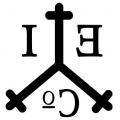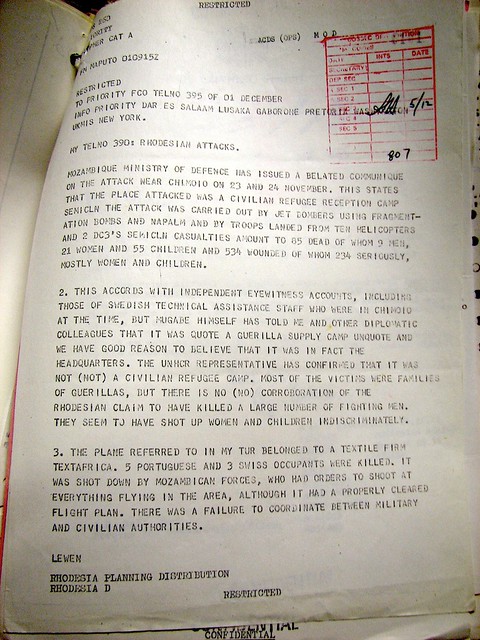Relax Mike. As explained to Backwards Observer the use of the word 'gook' in the Rhodeisan context had no racial connotations. It was merely a term used for the enemy.
That the use of the word in the context of Vietnam as used by US forces is taken as an insult by people of East-Asian origin is a different issue totally.
Let me illustrate my point:
Plenty of those signs around here in Durban, South Africa. What's the problem? No its not a NAZI Swastika but the 'shakti' used in Hinduism, Buddhism and Jainism, and is also a Chinese character. So what are we to do? Ban the use of the symbol because of its NAZI connection regardless that there is no such connection with its use by Buddists, Hindus and Jains? This would be political correctness gone mad.
Rex Brynen then said:
Brynen is entitled to his opinion. You take it from whence it comes. The use of CTs (communist terrorists) and terrs (terrorists) are hardly any more inappropriate than the use of the word 'terrorist' is in the post 9/11 world... unless of course you are on the left of the political spectrum.
This matters how much? Backwards Observer now knows that the use of 'gook' in the Rhodesian context has no racial connotation and no connection with people of Chinese origin.Thereafter, the G-word disappeared from this thread (whether or not used elsewhere is another issue) - until it was revived by Backwards Observer (directed to JMA as an ad hominem - still an ad hominem whether true or false) and culminated in this wonderful comment by Backwards Observer:
Now all that remains is for that penny to drop with you.
Censorship?Like the 9/11 folks did - eh ! Nice; really nice.
I think the recent "gook" posts should be deleted.
Mike
The approach has surely got to be more mature than this. What about discussing the issue of names being applied to one's enemy in an open and frank manner? Why does everyone try to/need to demonize their enemy? Would make for an interesting discussion ... but not for the faint hearted politically correct who would no doubt squirm with discomfort.



 Reply With Quote
Reply With Quote








Bookmarks